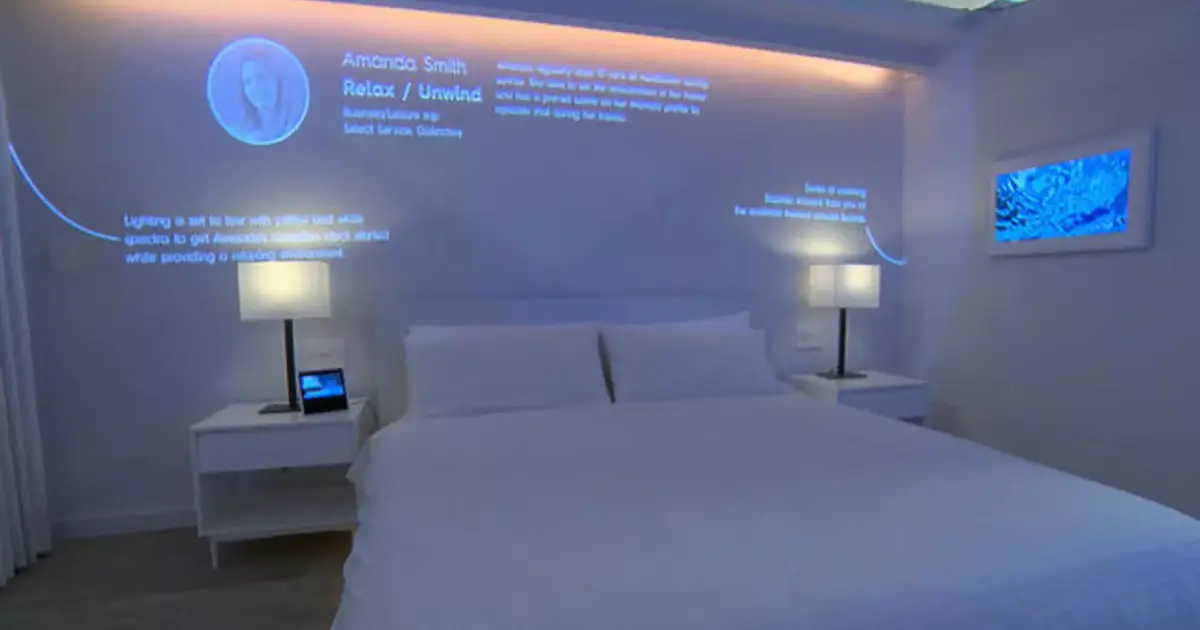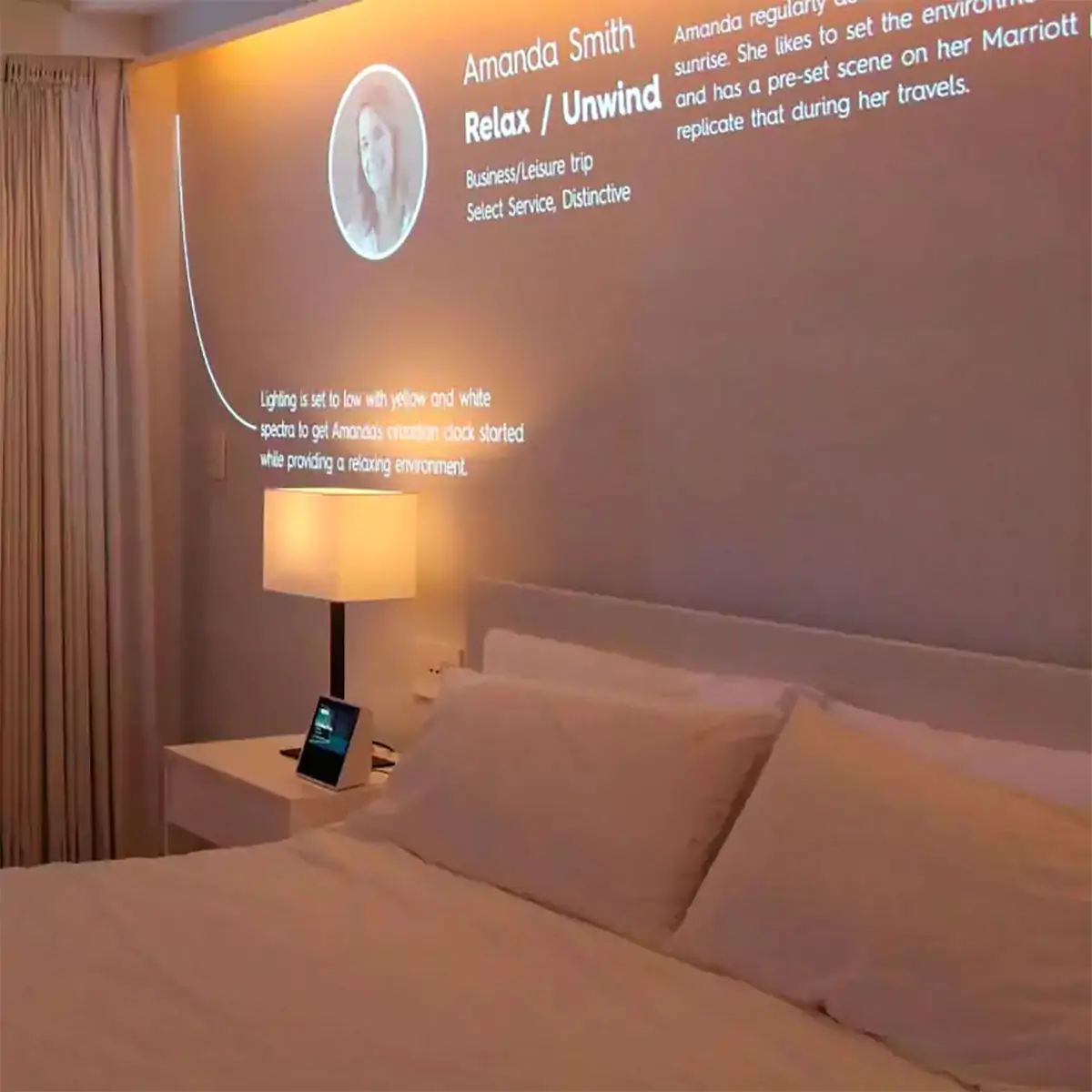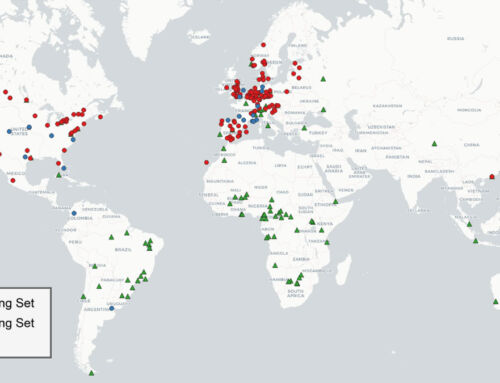Nowadays, travellers seek new technologies and new experiences. Hotel companies know this and they should act to satisfy this demand. As such, smart hotels have become a priority for hoteliers.
Actually, smart rooms have many functions that allow hotels to be more efficient. They allow costs to be reduced in terms of water and electricity consumption, and avoid personnel carrying out too many mechanical tasks.
Currently, designing or renovating a room is not just about design and colours. In fact, transforming a room is about implementing new technological equipment; adjusting the lighting with several options to create a personalised ambience, or enjoying your favourite drink prepared by a robot. All these functions facilitate and improve guests’ stays and the majority of them can be administered through mobile apps or by an integrated remote control. Once again, these media reinforce the customer’s individualised experience.
Smart technologies can also generate the “wow effect”. For example, some companies offer windows that adjust automatically or manually to optimise the room’s heat, according to client taste. This type of smart material changes its properties according to the room’s temperature. There are also photochromic that change their transparency according to the surrounding light intensity. These materials help travellers to adapt to their destination as quickly as possible, to avoid jet lag, for instance.

Nowadays, customer priorities are changing. Environmental protection and pollution reduction are becoming increasingly important for travellers and smart rooms can control consumption. Customers can opt to reduce the visits that the cleaning service makes, or to control the heating or air conditioning, with an application connected to a thermostat.
In conclusion, hotel technology improves customer experience and it allows gains in efficiency and productivity. Hotels continue to search for technologies to transform their services and face new challenges imposed by travellers.






